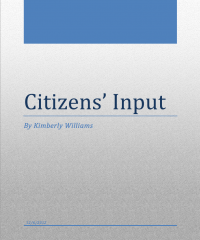
Research Paper:
Paper Subheadings:

Introduction:
Natural gas drilling by hydraulic fracturing is a complex process with complicated implications and a variety of stakeholders, and all aspects of this process are important. The input and opinions of citizens is particularly important to the fracking situation because it is the reaction of the citizens that can determine the fate of the natural gas drilling industry and the fracking process. Ultimately decision makers in our democratic political system will react to whether citizens enthusiastically endorse the process or overwhelmingly reject it. By voicing their opinions in unison, the people have significant power to make change, which is why the effects that fracking have upon citizens are so crucial to the situation.
At this point, citizens have not come to a general consensus about the approval or disapproval of fracking; many are still caught up in the controversy. Some citizens side with industry while some side with environmentalists. Citizens’ input is crucial to the controversy of fracking because citizens are both affected by and have an effect on the debate. Some citizens’ opinions are swayed by their political opinions or the extent to which they value environmental health or economic prosperity. The controversy is affected by citizens’ input based on the sentiment of citizens who have experienced fracking.
The general public should care about how citizens who are affected personally by fracking feel about the process out of compassion for their peers. Although not all citizens are directly affected by natural gas drilling, U.S. energy policy should not be reliant on a process that degrades the quality of life for those who are affected. All Americans should study the issue closely and consider the positive and negative implications that are felt by those who are most intimately involved with the issue before determining if they support or oppose fracking for natural gas extraction in the United States.
